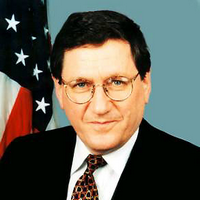The Washington foreign policy community has a hot new buzzword: "Af-Pak," an amalgamation of Afghanistan and Pakistan meant to denote the ongoing "two-front war" that Islamist militants are currently waging in both countries. Perhaps it is fitting that one of the most impenetrable foreign policy challenges of our time is symbolized by yet another impenetrable acronym. Not content to leave the field to the Bush administration's clunky and ill-defined "GWOT" -- that is, the "Global War on Terror" -- the Obama administration has apparently adopted "Af-Pak" (or its variants, "Afpak" and "AFPAK") as the acronym that will define a significant component of its foreign policy. It's already on the tip of everyone's tongue, from Washington Post columnist David Ignatius to the "Af-Pak" special envoy himself, Ambassador Richard Holbrooke. Holbrooke even referred to "Af-Pak" in his speech at the Munich security conference in February, with representatives of both Afghanistan and Pakistan present. In many ways it is useful to emphasize the need for synergistic policies in Afghanistan and Pakistan. The two countries and the dangers they face are inextricably linked. Whatever strategy the Obama administration chooses, it will have to offer a way forward in the ongoing military campaign in Afghanistan while also addressing the fact that much of the underlying support for the Taliban and al-Qaida menace lies in Pakistan. But do we really need another acronym? It's not that hard to talk about the conflict in Afghanistan and Pakistan without abbreviating it. In fact, there's something odd about trying to save a few seconds while discussing a struggle that everyone agrees will be long and difficult. Worse still, "Af-Pak" is the latest example of an acronym that acts as a bumper-sticker substitute for real strategic thinking, stifling public debate about hard issues.
Washington Needs to Ditch ‘Af-Pak’

